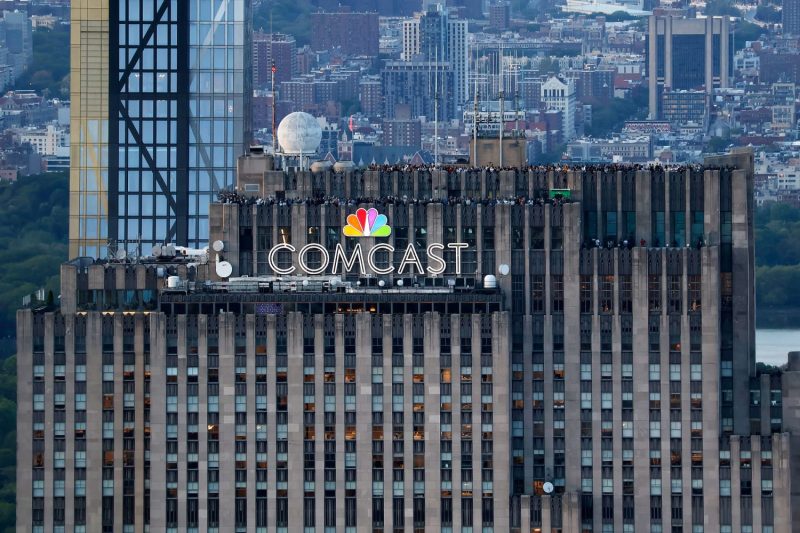
Comcast’s Surprise Move: Spinning off MSNBC, CNBC, and USA Channels!
In a surprising move that has generated significant buzz within the media industry, Comcast recently announced its plan to spin off several of its well-known cable channels, including MSNBC, CNBC, and USA Network. This decision marks a strategic shift for the media conglomerate, as it seeks to streamline its operations and focus on its core business areas. Let’s take a closer look at the implications of this move and how it could reshape the landscape of cable television.
First and foremost, the decision to spin off these cable channels reflects Comcast’s efforts to adapt to the shifting dynamics of the media and entertainment industry. With the rise of streaming services and digital platforms, traditional cable television has been facing increased competition and declining viewership. By separating these channels from its core business, Comcast can potentially unlock more value and strategic opportunities for each channel to thrive independently.
For viewers, this spin-off could mean changes in the way they access and consume content from these popular cable channels. While Comcast has indicated that it will continue to have distribution agreements with the spun-off channels, there may be shifts in programming and branding as each channel establishes its own identity and strategic direction. This could result in a more diverse and competitive landscape for cable television, offering viewers a wider range of content choices and viewing experiences.
From a business perspective, the spin-off of these cable channels could have significant implications for the financial performance of both the spun-off entities and Comcast itself. By creating separate entities for MSNBC, CNBC, and USA Network, Comcast aims to enhance the value and growth potential of each channel, potentially attracting new investors and partners. Additionally, this move could also help Comcast streamline its operations and focus on high-growth areas within its business portfolio.
The ripple effects of this spin-off decision are likely to be felt across the media industry, as competitors and stakeholders reevaluate their own strategies in response to Comcast’s move. As cable television continues to evolve in the digital age, companies will need to prioritize innovation, content quality, and consumer engagement to remain relevant and competitive in the ever-changing landscape of media and entertainment.
In conclusion, Comcast’s plan to spin off cable channels, including MSNBC, CNBC, and USA Network, represents a bold strategic move that underscores the company’s commitment to adapting to the evolving media landscape. While the full impact of this decision remains to be seen, it is clear that the media industry is in a state of transformation, driven by changing consumer preferences and technological advancements. As Comcast and other key players navigate these shifts, the future of cable television and content delivery will continue to be shaped by innovation, competition, and the quest to capture audience attention in an increasingly crowded marketplace.
